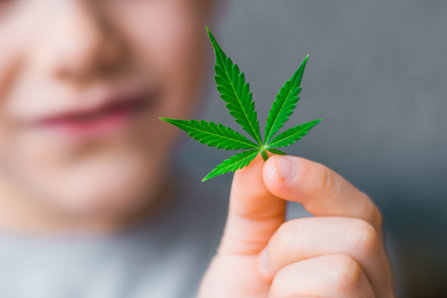Marijuana and Children: Household Pot Use Can Result in Detectable Levels of THC in Kids

Here are some vital questions I’d like the answer to:
- How many parents or grandparents who smoke marijuana think that their children or grandchildren might test positive for the marijuana intoxicant tetrahydrocannabinol (THC)?
- How many parents or grandparents take strict measures to make sure that children in their households are never exposed to THC?
- Do they know what these preventative measures would need to be?
If I knew the answers to those questions, perhaps I would not be so concerned about children being exposed to THC. As it is, it’s quite possible that caretakers are unknowingly exposing their children to measurable amounts of this drug.
According to the Washington Post, nearly 55 million Americans are current marijuana users, with about 35 million using the drug at least a couple of times a month. More than half of those using marijuana are parents (54%). That’s a lot of children in proximity to the drug.
In addition to the number of parents using marijuana, an increasing number of senior citizens are using the drug. While some of these seniors may be recalling the days of their youthful pot use, many others are using the drug medically. In terms of children being exposed to the effects of pot, the reason for using it makes no difference.
How Are Children Exposed to THC?
How can the children or grandchildren of marijuana users be exposed to THC? There are a number of possible channels of exposure.
- If a pregnant woman consumes cannabis products, THC and all the other components of cannabis will be passed on to her unborn child. As reported by CNN, THC and other components received by the baby can result in low birth weight and developmental problems. Their report also noted that women are increasingly using marijuana to prevent morning sickness. A survey showed that among pregnant women under 18 years of age, nearly 22% were using marijuana during pregnancy. Among pregnant women aged 18 to 24, 19% were using it.
- If a woman nurses, THC, and other components are relayed to the child through her breast milk. A new study found that an infant consuming only breast milk will receive 2.5% of the mother’s dose of THC.
- Children absorb THC if they are exposed to secondhand marijuana smoke. If you have any doubt about it, read this study of non-smokers who sat in a chamber with pot smokers and came out testing positive for THC. The study compared the effects of an unventilated chamber with a normally ventilated one and in both situations, spectators absorbed measurable amounts of THC.

- The cannabis industry in both medical and recreational states is still manufacturing THC-infused cookies, candies, drinks, gummy bears, chocolate bars, mints, granola bars and much more. Young children don’t know the difference between a gummy bear that would get them high and one that is safe for them to eat. In 2017, doctors in Colorado reported on the death of a toddler who had been exposed to a high dosage of cannabis products, most likely an edible, a couple of days before death, and attributed that death to the THC. How many parents or grandparents are going to remember to put every leftover bit of cannabis edible into a locked container when they are done with it?
Some people might feel that smoking marijuana around children is no different than having a beer around them. There’s a significant difference between a beer and pot—children don’t absorb alcohol when you drink. They do absorb THC when you smoke a joint in their presence.
While it’s increasingly unacceptable for a woman to drink during pregnancy, there are as yet no laws nor are there any established social conventions about using marijuana while pregnant, nursing or being in the presence of children.
What Will the Long-Term Effects of Exposure to THC Be Like?
This is something we have no information about yet. Let’s say a child is exposed to THC during gestation, nursing and by living in the household of a pot smoker throughout his young years. It’s well known that THC is stored in the fat cells of the body in enough quantity that in some situations, sufficient THC can be released from those cells to cause intoxication a month later, as you can read here.
I’m going to repeat that fact. THC is stored in fat cells in such ample quantity that enough THC can be released into a person’s bloodstream to cause intoxication a month later. So a person who consumes a significant quantity of marijuana daily through March, let’s say, could become “re-intoxicated” in late April if he (or she) goes hungry too long or is subjected to high levels of stress.

This child has received THC via his mother’s blood, mother’s milk, secondhand smoke and perhaps one or two edibles he picked up. We don’t have the answers yet to these questions:
- What will the mental and physical effects of that exposure be?
- How much of the THC will remain stored in the child’s body and accumulate over time?
- Will he (or she) be more attracted to the drug when he smells his friends smoking it for the first time?
- Would he be more sensitive to the effects of the drug?
- Will he be more likely to become addicted?
It takes time to work out the legally or socially acceptable practices for the use of intoxicants and the research on marijuana is as yet fairly scarce. It is a safe bet that many children in marijuana-using households would test positive for some level of THC, as you can learn about in this report from National Public Radio. What we have then, is a huge experiment to determine the long-term effects of children growing up around parents, grandparents or other caretakers who expose them to marijuana smoke or even edibles they can get their hands on. Unfortunately, there may be millions of children participating in this experiment who have never given their consent. And the results may not be available for another decade or two.


 ®
®